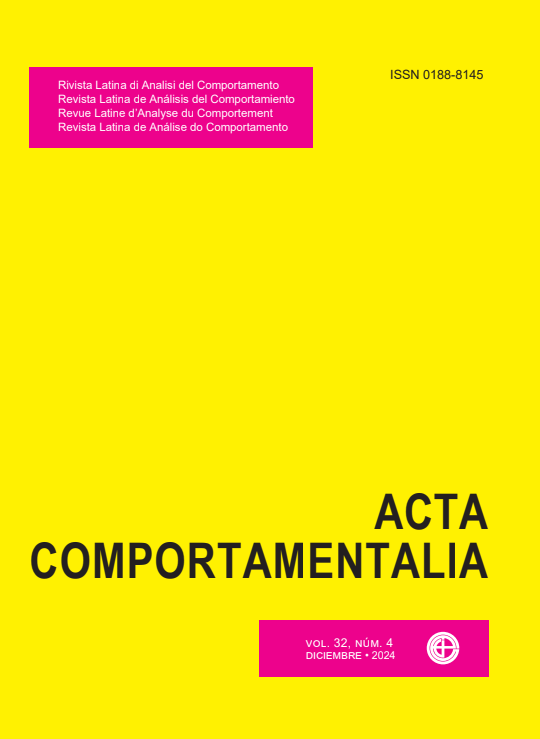Behavior Analysis and Sexual Reorientation Therapy: Restoring a Debate
DOI:
https://doi.org/10.32870/ac.v32i4.88490Keywords:
homossexuality, behavioral therapy, ethics, values, politics, scienceAbstract
In the 1970s, Behavior Analysis was the center of controversies involving the violation of human rights. In the context of homosexual rights, activists from Gay Liberation Front opposed both the classification of homosexuality as a pathology and the use of behavior modification for sexual reorientation. Although some studies have investigated the participation of behavior analysts in these therapies, little attention has been given to those who opposed them. Considering this fact, the aim of this article was to restore a critical debate about these therapies carried out by any behavior analyst in the 1970s. To achieve this, we conducted historical research, searching for critical articles by any behavior analyst in the American Psychological Association report on sexual reorientation procedures. We found two articles by G. C. Davison, which served as a starting point for the search for other works, totaling seven articles retrived: three critical of sexual reorientation procedures, three replicas in favor of such procedures, and one rejoinder. Davison initially directed many of his criticisms at the theoretical and methodological flaws in sexual reorientation research, gradually becoming more critical of its ethical and political aspects. Replies to Davison’s arguments came from authors of different theoretical orientations. They consisted of understatement of the socio-political aspects of prejudice against homosexuals, defending the patient’s voluntary choice for the procedures, and accusing Davison of political bias in his scientific practice. Concerning the behavior analysis community, Davison highlighted the neglect in the area and its weak adherence to the theoretical and philosophical principles of Behavior Analysis (e.g., determinism, functional analysis, refusal to pathologize homosexuality) in research on the topic. We concluded that the behavior analysis community must take a political stance and confront its past; otherwise, it may continue to repeat the same mistakes.
Downloads
Downloads
Published
How to Cite
Issue
Section
License

<a rel="license" href="http://creativecommons.org/licenses/by-nc-sa/4.0/"><img alt="Licencia de Creative Commons" style="border-width:0" src="https://i.creativecommons.org/l/by-nc-sa/4.0/88x31.png" /></a><br />Este obra está bajo una <a rel="license" href="http://creativecommons.org/licenses/by-nc-sa/4.0/">licencia de Creative Commons Reconocimiento-NoComercial-CompartirIgual 4.0 Internacional</a>.






